About
The Department of Electronics and Communication Engineering at Techno Main Salt Lake was established in the year 2001 with an aim to provide excellence in the field of Electronics and Telecommunications technologies.The number of student intake at the 1st year B. Tech program being 60 in the beginninghas climbed up to 90 in 2003-2004 which is further increased to 120 in 2007-2008. The department has started the Post Graduate M. Tech program in VLSI and Microelectronics in the year 2006-2007 and M. Tech in Electronics and Communication Engineering in the year 2012-2013 respectively.
The academic standard of ECE department provides a conductive and intellectually challenging environment that empowers students to become innovative thinkers, creative problem solvers and inspired learners through our highly qualified, experienced and dedicated faculty members, modern well equipped laboratories, co- curricular participation and skill based education such as Finishing School Programs which closely match the requirement of modern industry and. The main emphasis of ECE department is on teaching and learning with sufficient prominence to research and consultancy. A student friendly homely atmosphere binds everyone together although a contemporary professional culture is simultaneously juxtaposed. Be it project development, seminar presentation, class lectures, departmental meeting or festivals, everyone is focused to deliver their best and finally, create highest level of efficiency and proficiency that ultimately helps students to confidently compete in the challenging global scenario.
Our academic standards persistently improve to provide students with necessary skills enabling them to have noteworthy performance records in industry, higher education in renowned national and international universities, entrepreneurship and management practices.
Grants and Accreditation
In 2009 the ECE B.Tech Program was accredited by NBA for 3 Years
Mission
1. To offer the state-of-art infrastructure for teaching, learning, research activities and innovative hands on engineering project.
2. To deliver curricula to meet ever changing industry requirement and cope up with the present trends in higher studies and research, through student centric learning methodologies.
3. To promote all round personality development of the students through interaction with alumni and experts from academia and industry.
4. To motivate and upgrade faculties for departmental success, growth and quality enhancements.
Vision
To excel in Electronics and Communication Engineering education, higher studies and research as per the needs of industry, deeply inculcating professional ethics and duly nurturing all-round personality development.
Program Outcomes
1. Engineering knowledge: Apply the knowledge of mathematics, science, engineering fundamentals, and engineering specialization to the solution of complex engineering problems.
2. Problem analysis: Identify, formulate, research literature, and analyze complex engineering problems reaching substantiated conclusions using first principles of mathematics, natural sciences, and engineering sciences.
3. Design/development of solutions: Design solutions for complex engineering problems and design system components or processes that meet the specified needs with appropriate consideration for the public health and safety, and the cultural, societal, and environmental considerations.
4. Conduct investigations of complex problems: Use research-based knowledge and research methods including design of experiments, analysis and interpretation of data, and synthesis of the information to provide valid conclusions.
5. Modern tool usage: Create, select, and apply appropriate techniques, resources, and modern engineeringtools including prediction and modelling to complex engineering activities with an understanding of the limitations.
6. The engineer and society: Apply reasoning informed by the contextual knowledge to assess societal, health, safety, legal and cultural issues and the consequent responsibilities relevant to the professional engineering practice.
7. Environment and sustainability: Understand the impact of the professional engineering solutions in societal and environmental contexts, and demonstrate the knowledge of, and need for sustainable development.
8. Ethics: Apply ethical principles and commit to professional ethics and responsibilities and norms of the engineering practice.
9. Individual and team work: Function effectively as an individual, and as a member or leader in diverse teams, and in multidisciplinary settings.
10. Communication: Communicate effectively on complex engineering activities with the engineering community and with society at large, such as, being able to comprehend and write effective reports and design documentation, make effective presentations, and give and receive clear instructions.
11. Project management and finance: Demonstrate knowledge and understanding of the engineeringand management principles and apply these to one’s own work, as a member and leader in a team, to manage projects and in multidisciplinary environments.
12. Life-long learning: Recognize the need for, and have the preparation and ability to engage in independent and life-long learning in the broadest context of technological change.
Program Educational Objectives
1. Utilize their domain knowledge to analyze data and technical concept for application to higher studies, research and innovation in Electronics and Communication engineering. [Excellence in domain knowledge and allied services, higher studies, research and innovation]
2. Excel in multidisciplinary areas with modern engineering tools, techniques and relevant software. [Versatility in Problem solving]
3. Develop expressive confidence and presentation skills to bring forth celebrated industry leaders, entrepreneurs, academicians and researchers. [Spirit of team work and leadership]
4. Inculcate lifelong learning, professional and ethical values for the development of the society.[Societal and ethical values]
Program Specific Outcomes
1. Analyse specific engineering problem relevant to electronics circuits, control & embedded systems and communication engineering by applying the knowledge of mathematics, computer science and engineering fundamentals.
2. Select current techniques and modern engineering tools, necessary to design complex system, containing hardware and software in the field of VLSI and communication engineering as per the needs of industry.
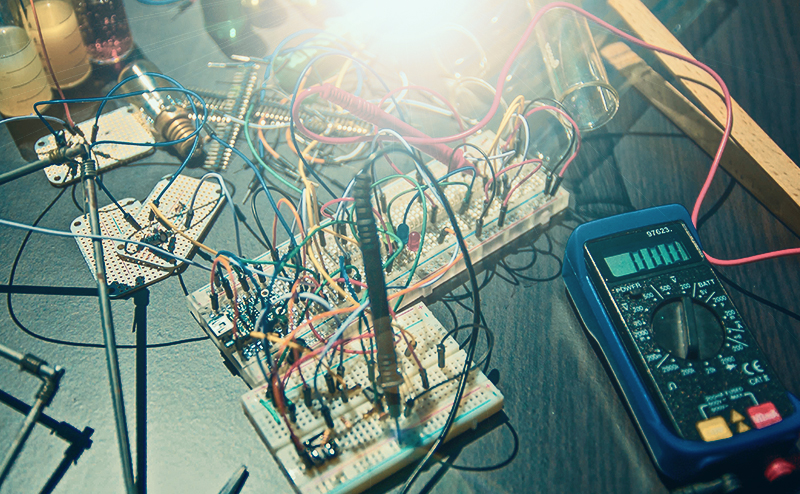
Electronics &
Communication Engineering
B.Tech : Techno Main Salt Lake provides B.Tech program in the department of Electronics & Communication Engineering. Students enrolled in this course will be able to design, fabricate, manufacture and maintain electronic equipments.
B.Tech Lateral : Techno Main Salt Lake provides B.Tech lateral entry program in the department of Electronics & Communication Engineering. This course enables aspirants with 3 years diploma in engineering or an equivalent degree to get admitted in 2nd year of B.Tech.
M.Tech : Techno Main Salt Lake provides M.Tech program in the department of Electronics & Communication Engineering. A master’s degree in Engineering involves research studies in varied fields of specializations. Participation in International conferences and submission of research methodologies in premier journals are paid utmost importance at Techno Main.
Syllabus
Electronics & Communication Engineering
Intake
B.Tech in Electronics and Communication Engineering : 120
M.Tech in Electronics and Communication Engineering : 18
M.Tech in Electronics and Communication Engineering (VLSI AND MICROELECTRO NICS) : 18
Laboratories
ECE Department embodies high quality laboratories to cater to all the courses being taught by this department, both intra and inter departmental.The following laboratories are presently functional at the ECE department:
Major Equipment :
1. Power meter with sensor X-band
2. Spectrum Analyzer
3. Klystron based microwave test bench
4. Gunn based microwave test bench
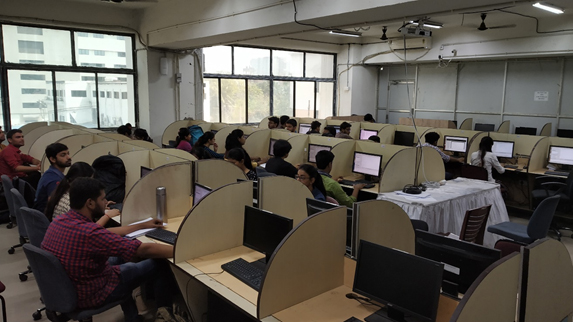
Major Equipment :
1. Function Generator
2. Oscilloscope
3. LCR meter
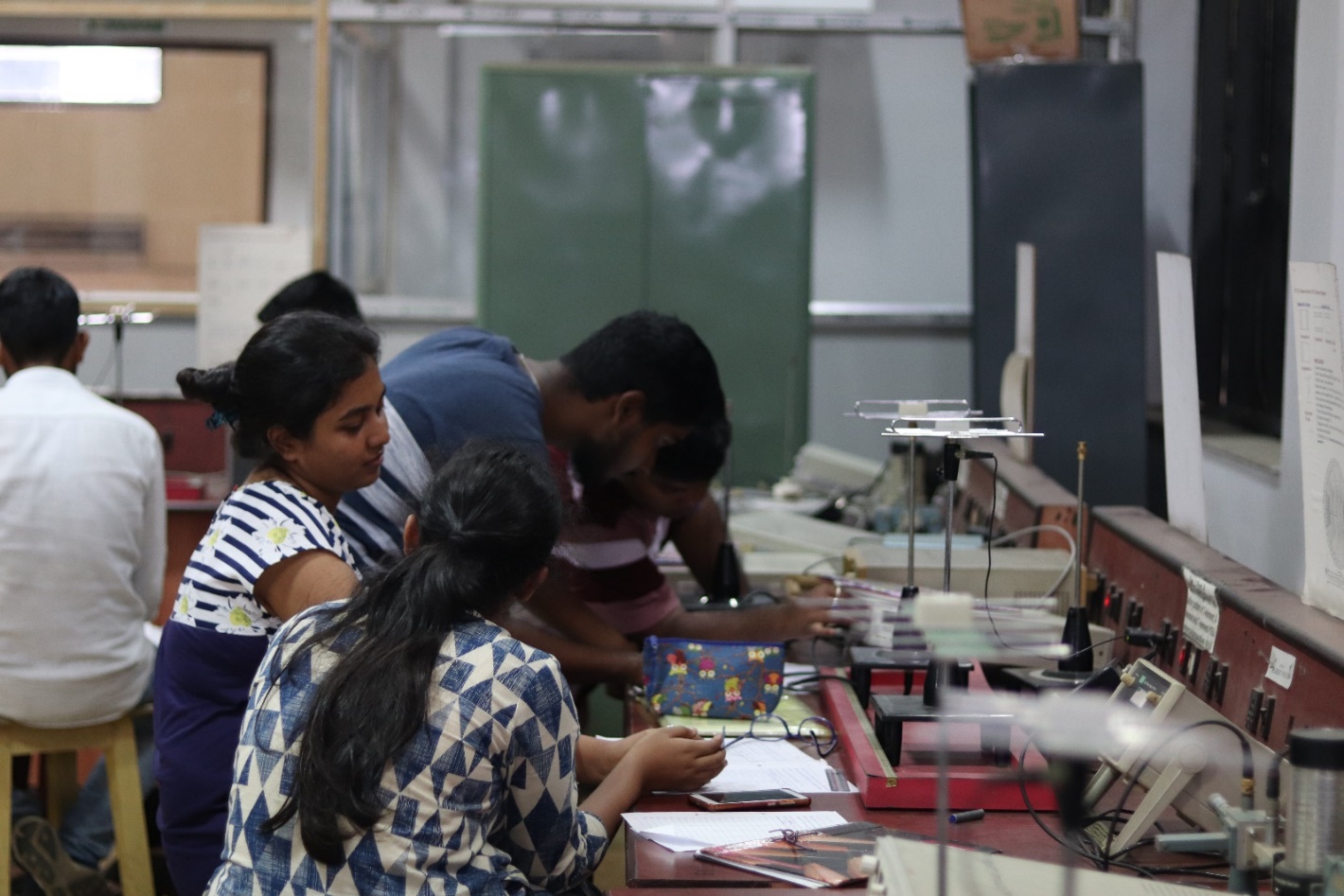
Major Equipment :
1. Function Generator
2. Cathode Ray Oscilloscope
Major Equipment :
1. Simple Antenna
2. Dipole Antenna
3. Folded Dipole Antenna
4. Yagi-Uda Antenna (3-element, 5 element, 7 element)
5. Spectrum Analyzer
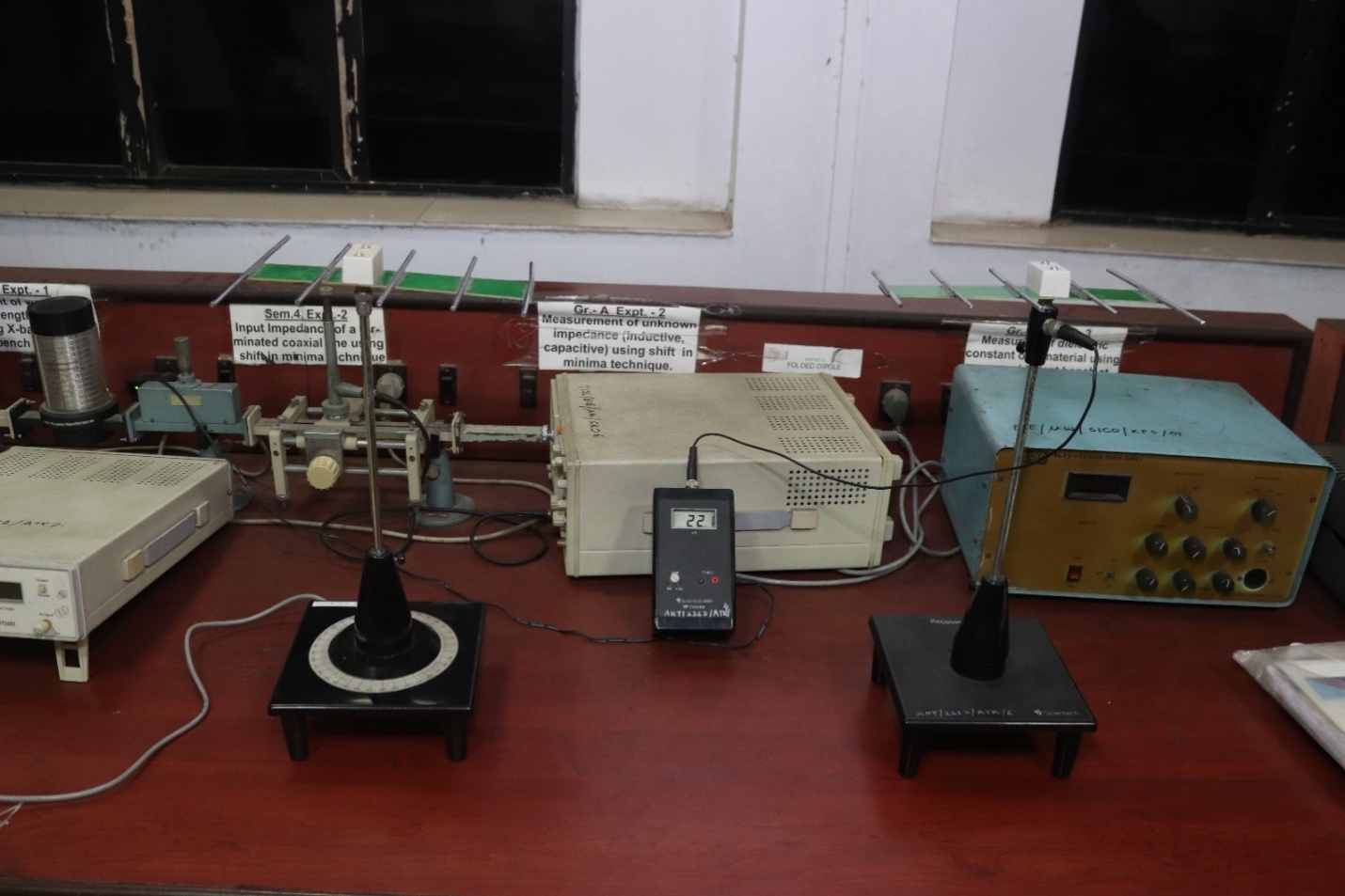
Major Equipment :
1. Xilinx System Edition 11.1 i
2. TANNER software
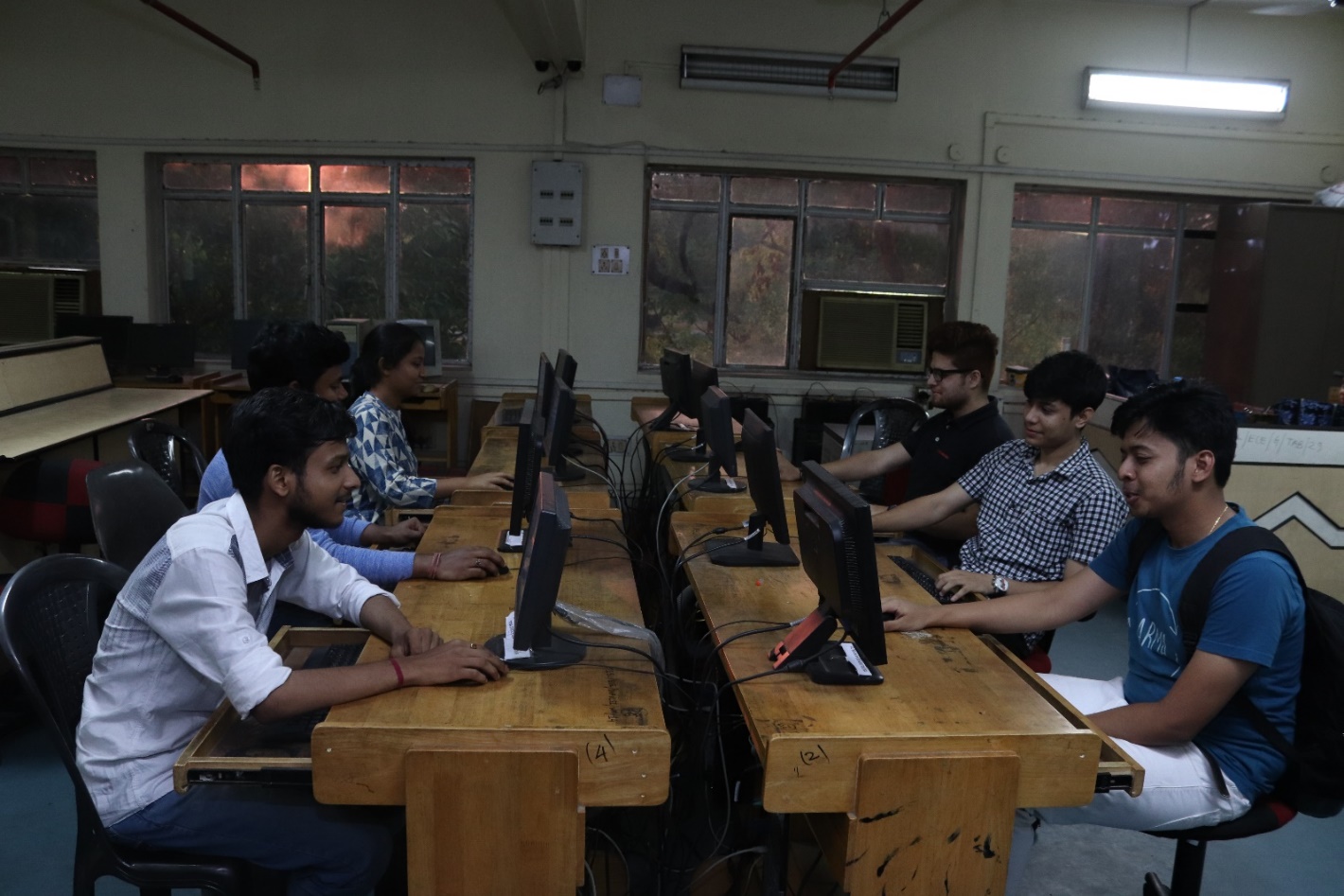
Major Equipment :
1. Function Generator
2. Cathode Ray Oscilloscope
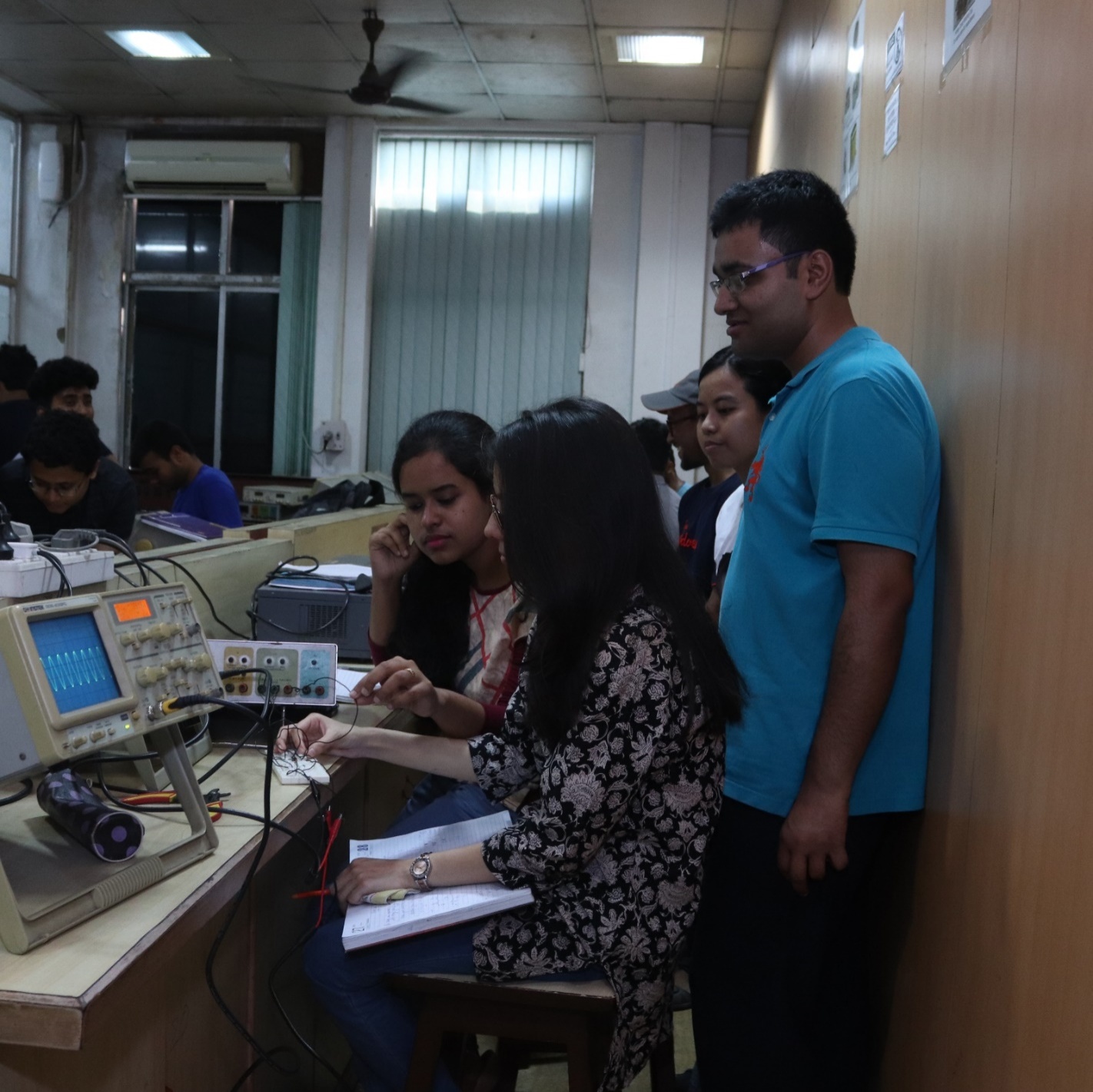
Major Equipment :
1. IC tester
2. Pulse generator
3. Logic Probe
Major Equipment :
1. 8085 based Microprocessor Trainer kit( Model ESA 85-2) Maker – ESA
2. 8051 Family microcontroller trainer kit.( Model ESA 31 ) Maker – ESA
3. ESA Study Card for 8255
4. ESA 8 channel 12 bit ADC
5. ESA Make Keyboard Interface
6. ESA Traffic light Interface
7. Computers
8. 8085 SIMULATOR
9. 8051 SIMULATOR.(KEIL)
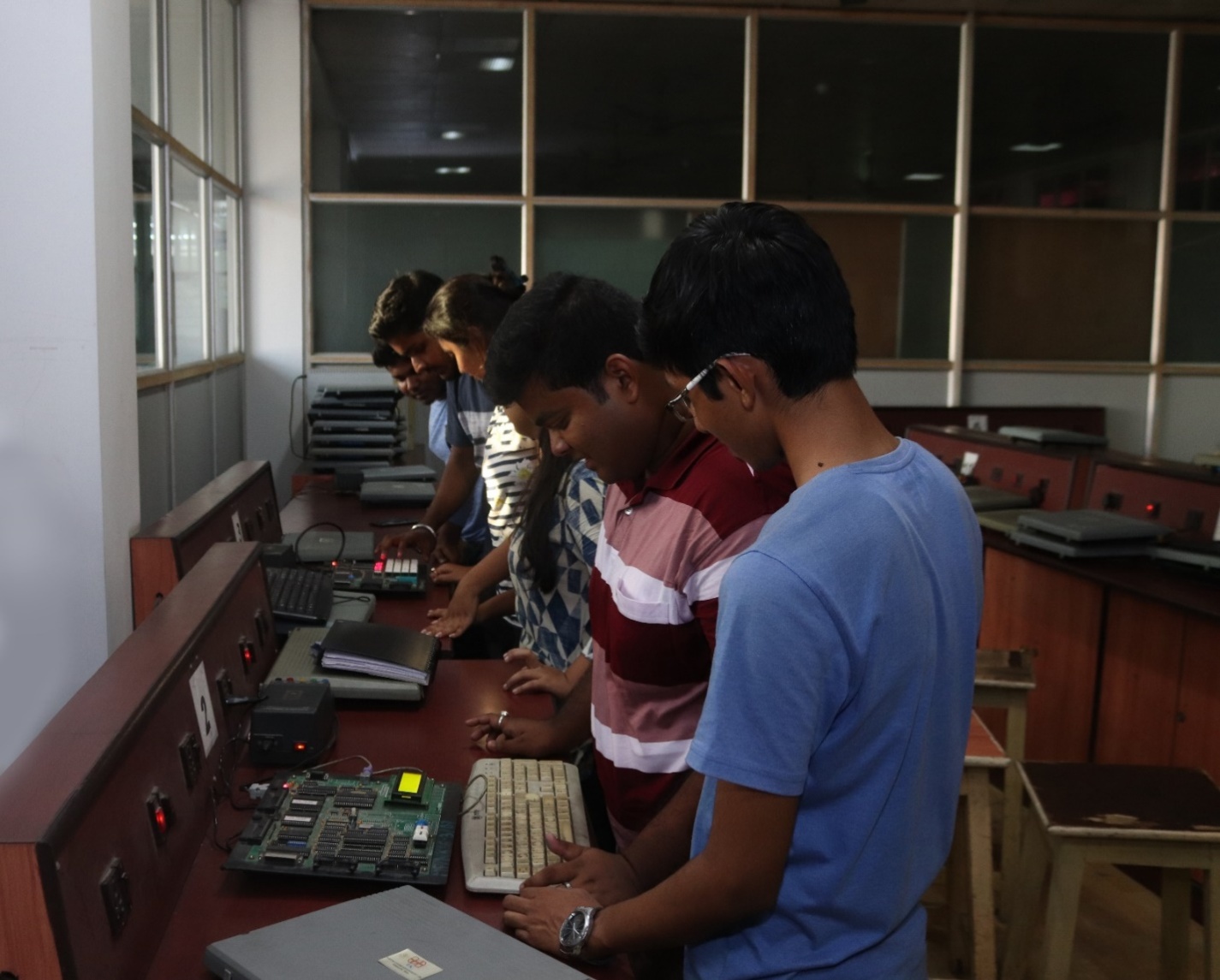
Major Equipment :
1. Dual Channel Oscilloscope
2. Function Generator
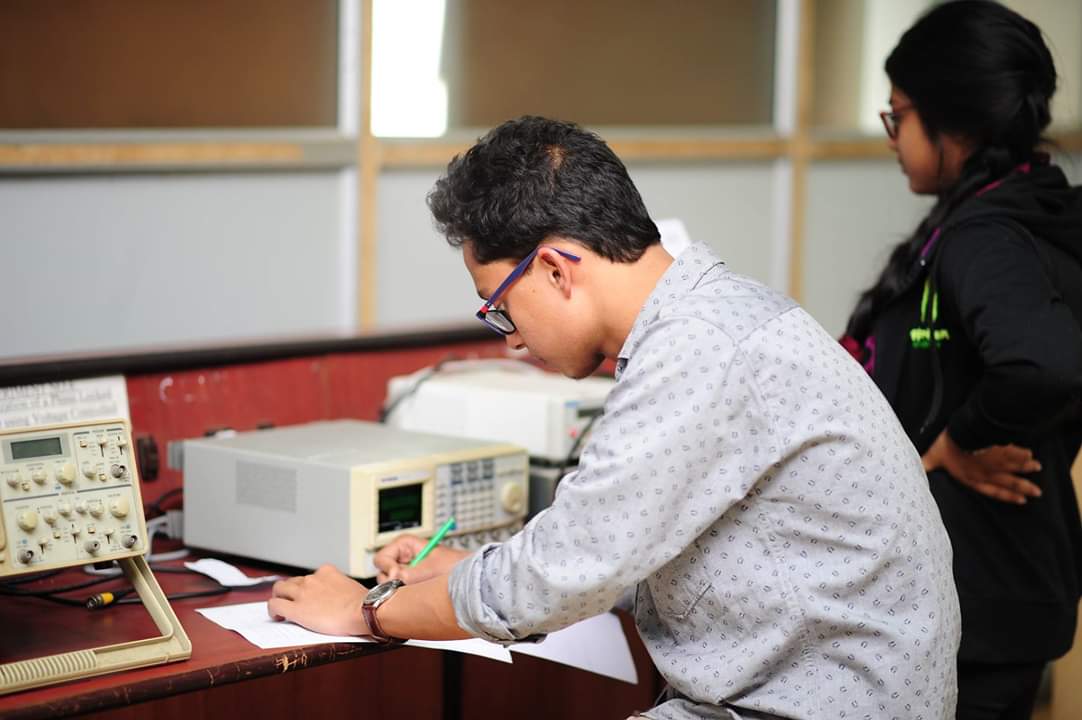
Major Equipment :
1. Programmable function Generator
2. Spectrum Analyzer
3. Automatic Distortion & level Meter
4. Digital Storage oscilloscope
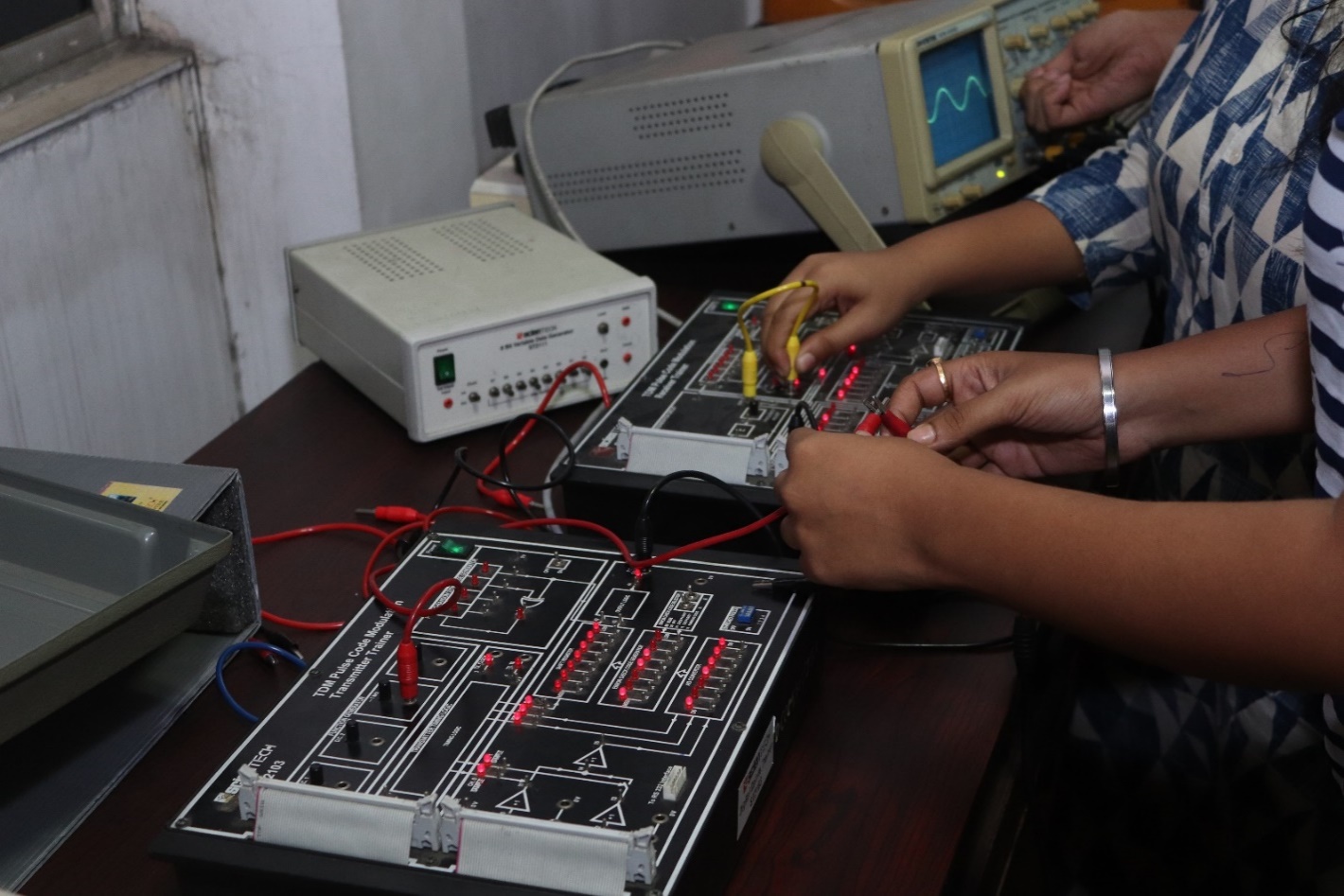
Major Equipment :
1. CDMA Direct Spread Spectrum Trainer
2. Programmable function Generator
3. Spectrum Analyzer
4. Automatic Distortion & level meter
5. Digital Storage oscilloscope
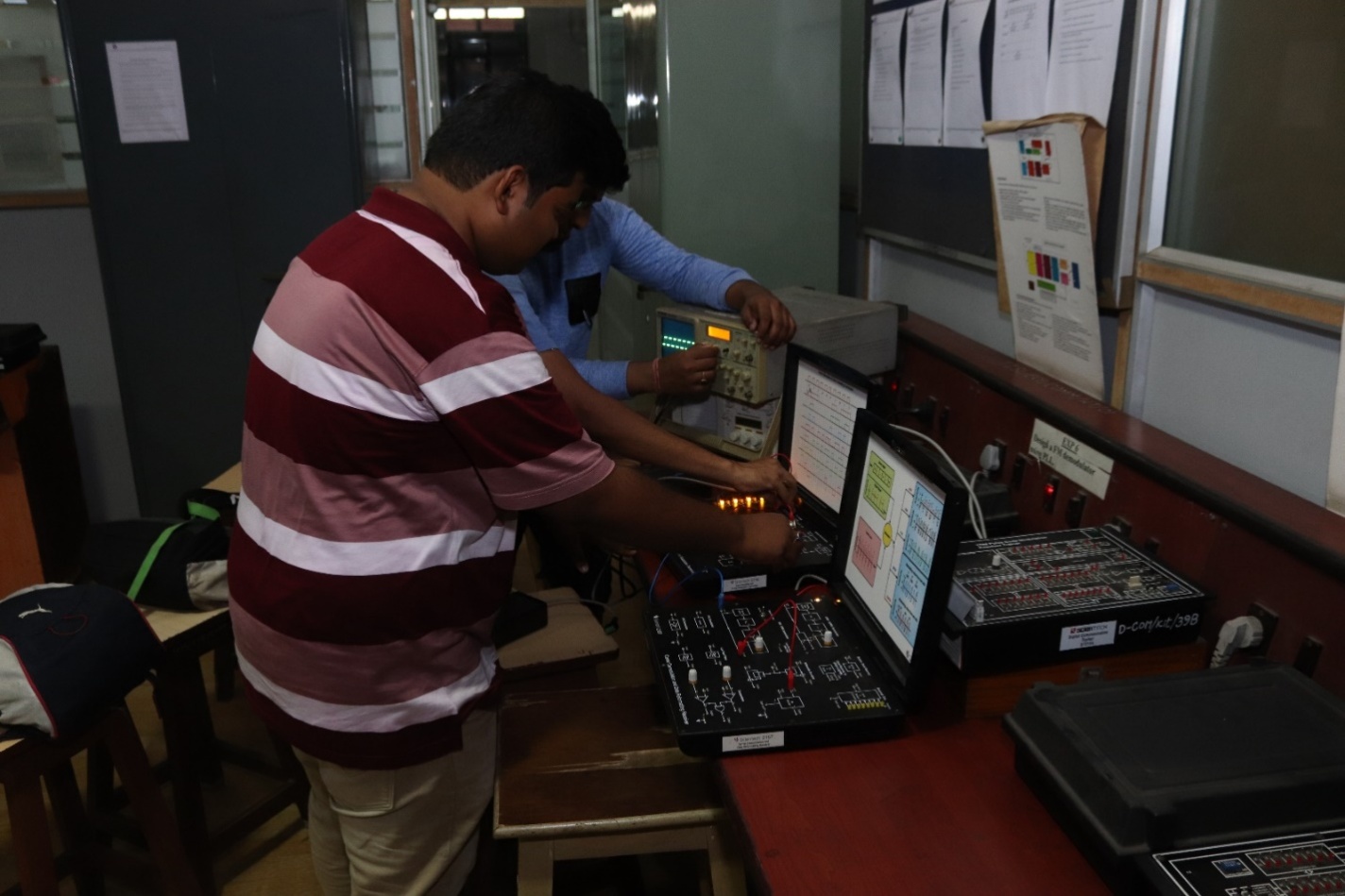
Major Equipment :
1. Computers with relevant software
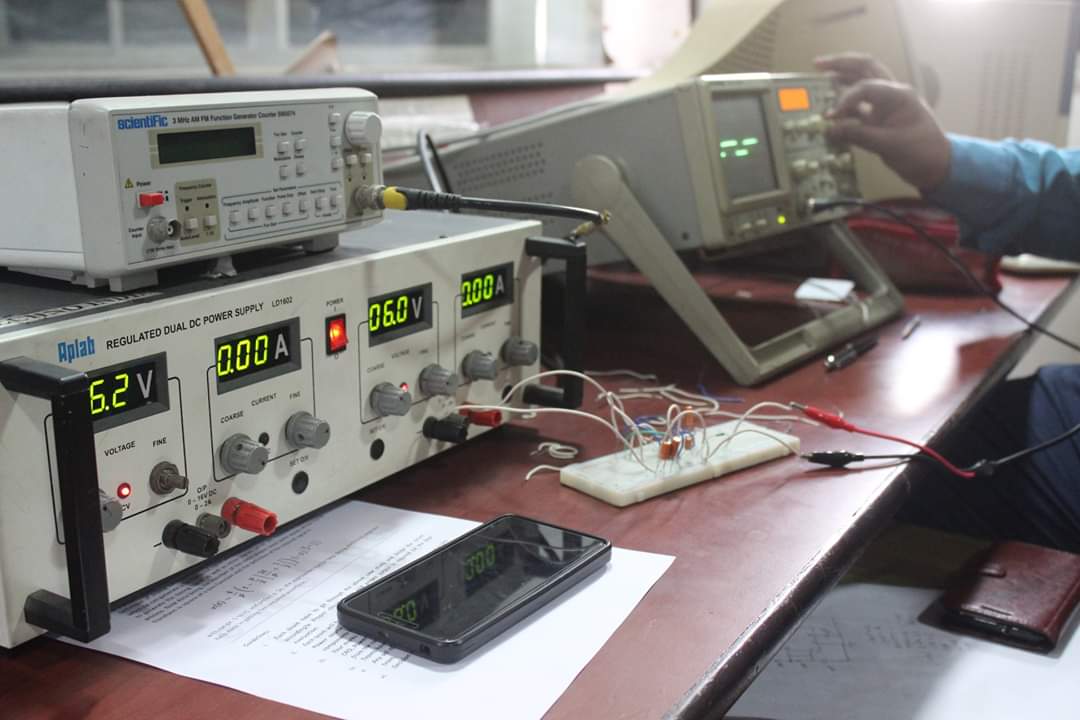
Major Equipment :
1. Computer with relevant simulation software
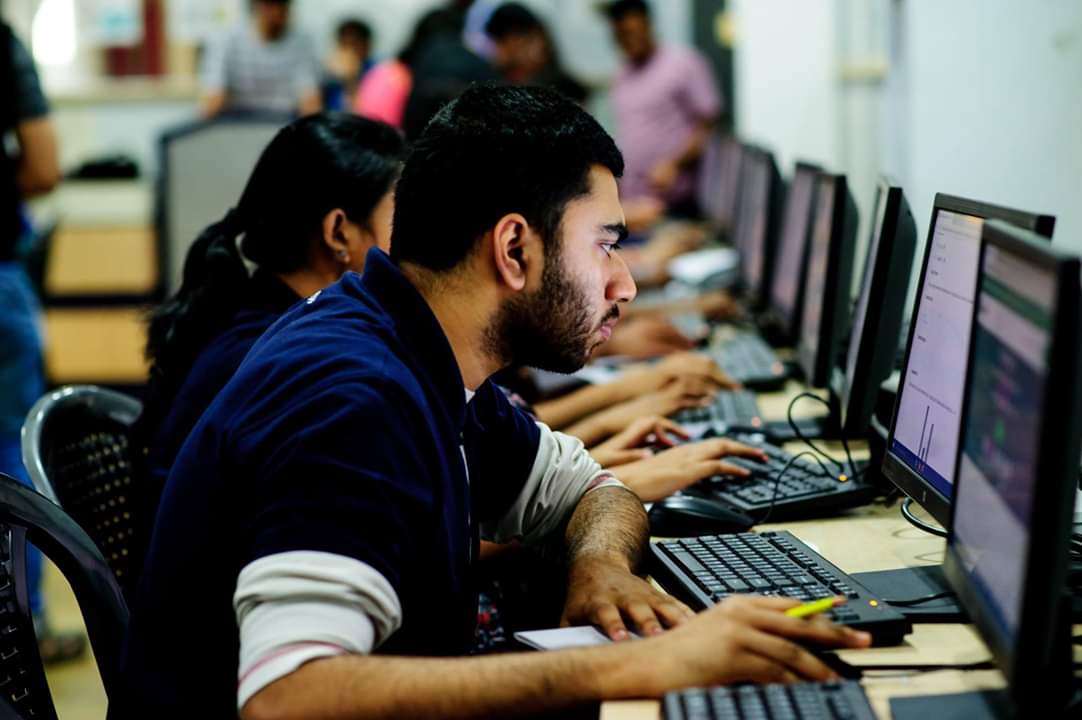
Major Equipment :
1. Computer with relevant simulation software
Major Equipment :
1. Computer with relevant software
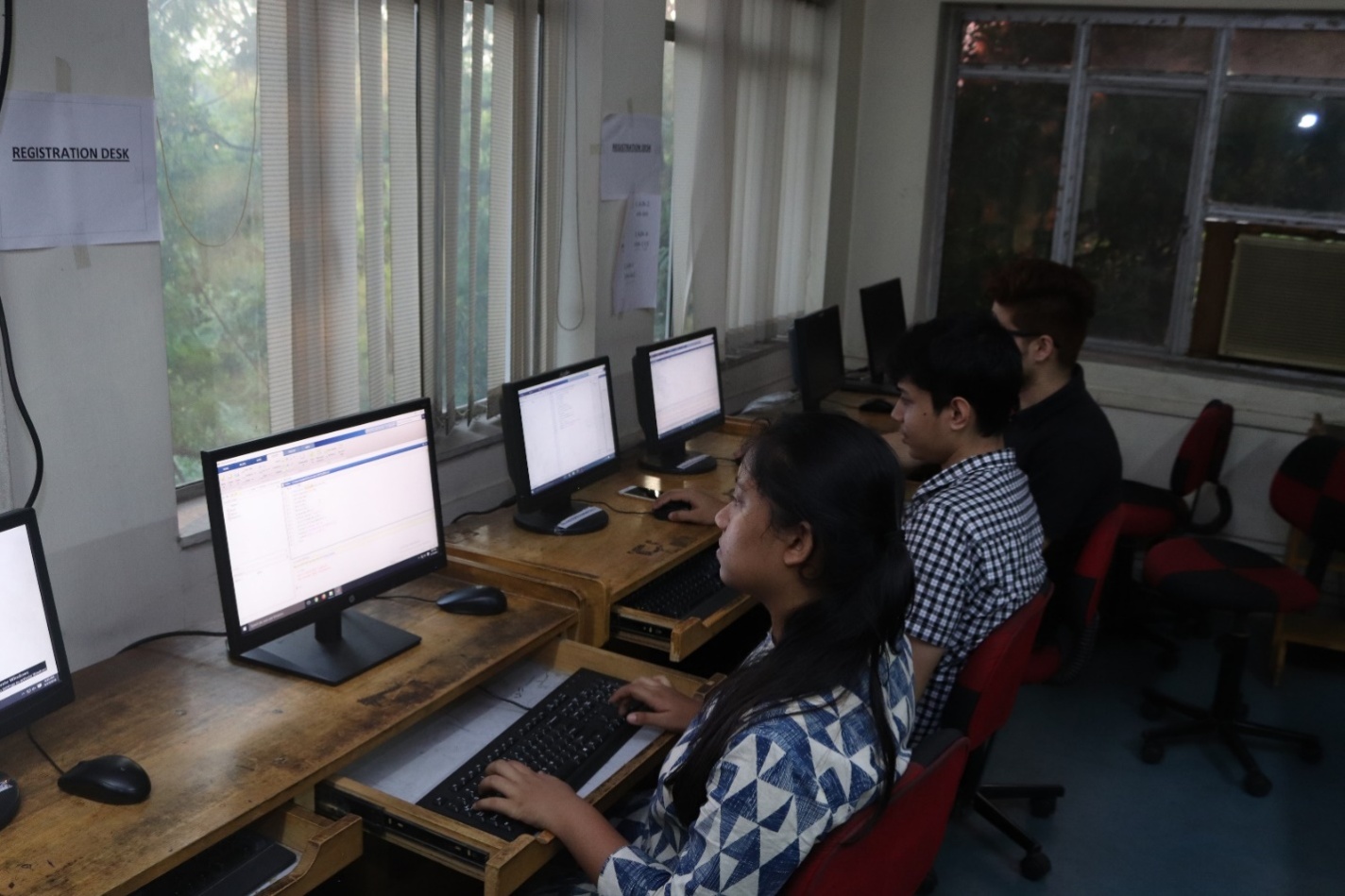
Centre of Excellence
Department has three Specialized Laboratories in collaboration with relevant industry to promote research facility as well as focused faculty and student development program.
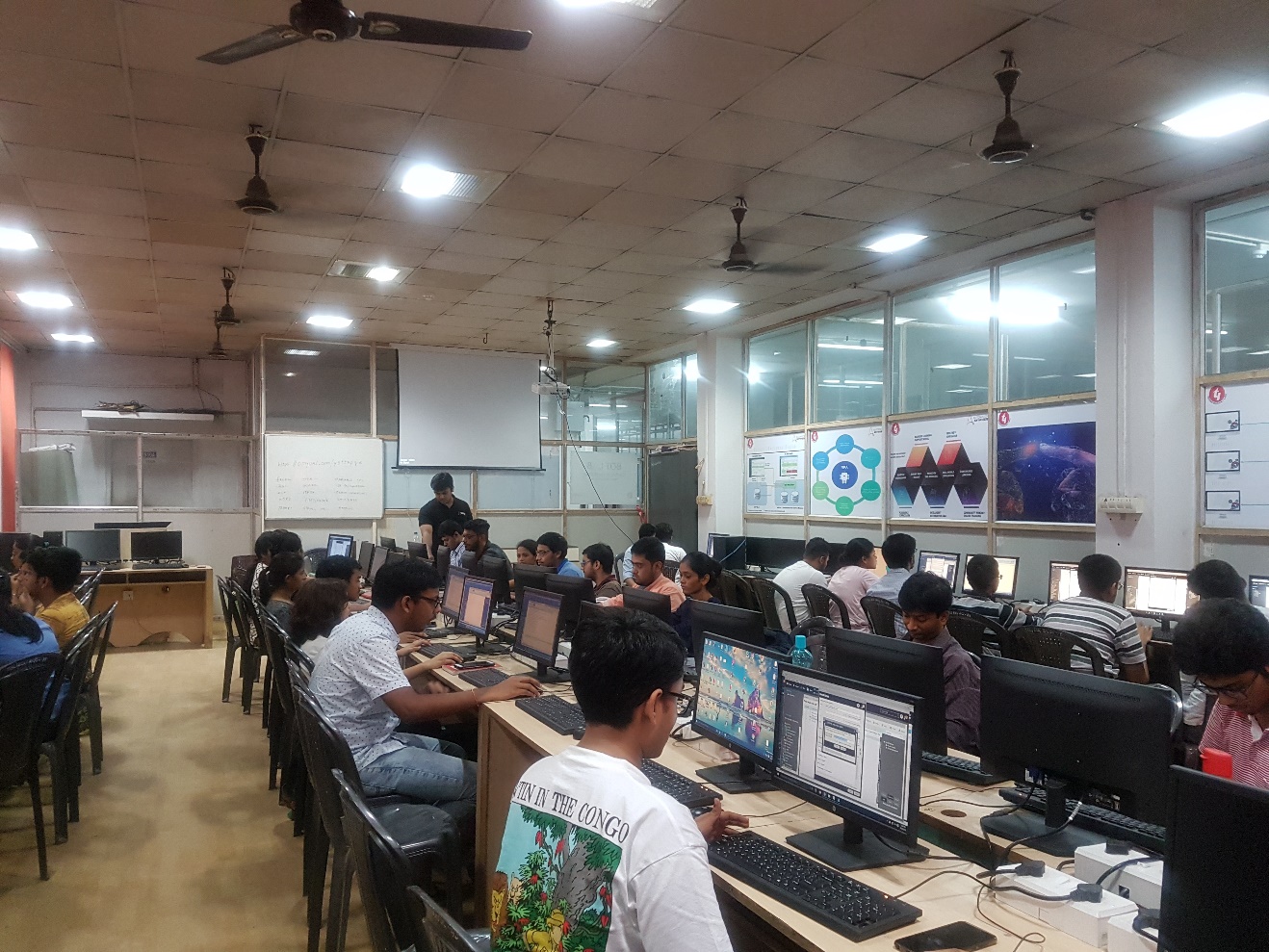
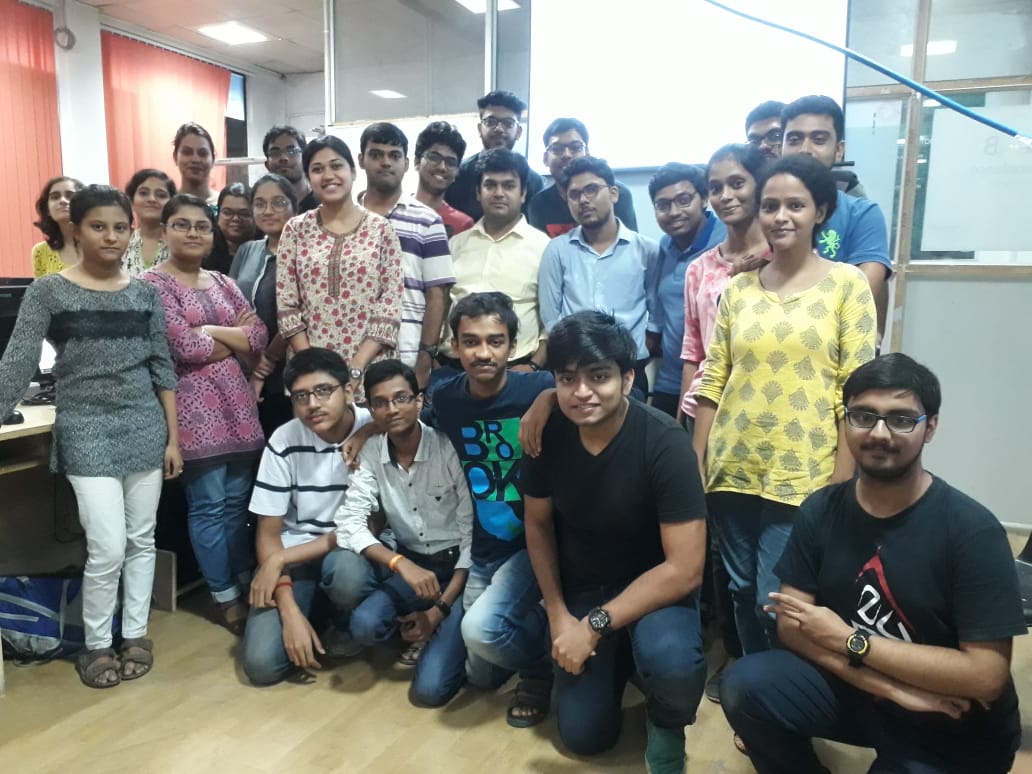
Research
Contact
Department of Electronics & Communication Engineering
Techno Main Salt Lake, EM-4/1, Sector-V, Salt Lake, Kolkata-700091, West Bengal
H.O.D: Prof. Soumitra Banerjee
E-mail: tisl.ece.hod2001@gmail.com
Landline(O): (91) 33-2357-5683/84, EXT. 213, FAX: (91) 33-2357-5686
Interactive Learning
Techno India provides virtual interactive learning facilities to its students; such repositories can be accessed anytime and anywhere that ensure that students get hassle free access to digital library, online journals and digital notes 24x7. The digital repositories comprise a vast collection of e-books, publications, notes as well as case-studies from renowned foreign authors and industry experts. As an academic institute of repute, Techno India strives towards making the learning experience promising for the aspirants so that the location or venue is never a barrier.
Quick Links
TMSL News
Contact us
Admission Office
Helpline No: 9836544416 / 17 / 18 / 19
1. TECHNO INDIA CHINGRIGHATA CAMPUS - LB 10, EM Bypass, Sector 3,Chingrighata, Kolkata 700098, WB. (Beside Leather Technology College [Service Road])
2. TECHNO INDIA (2nd Floor)- EM-4/1, Sector-V, Salt Lake, Kolkata-700091, WB.
Campus Address
EM-4/1, Sector-V, Salt Lake, Kolkata-700091, WB Contact No: 033-23575683 / 84 / 86
Email : info@ticollege.ac.in
principal@ticollege.ac.in
Makaut Address
BF 142, BF Block, Sector 1, Salt Lake City, Kolkata, West Bengal 700064.
Website : www.wbut.ac.in
Copyright © | A unit of Techno India Group | All rights reserved
